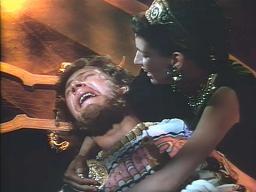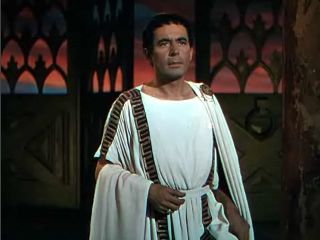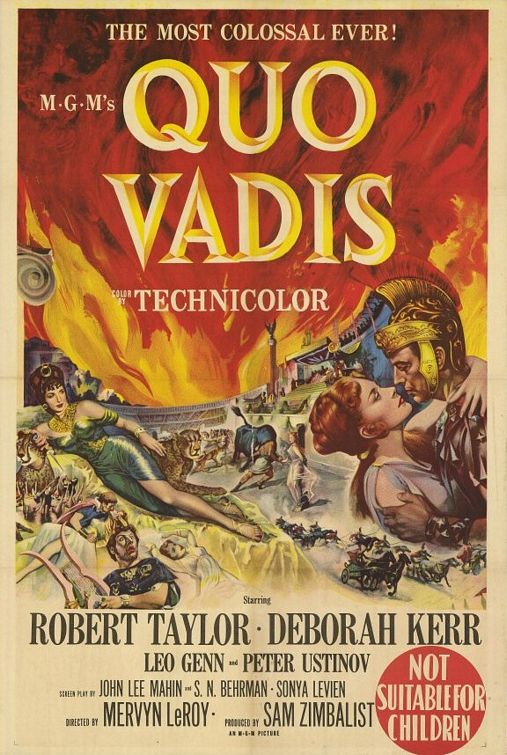“Is this the end of Nero?” cries Peter Ustinov towards the end of his superbly hammy death scene in Quo Vadis (1951). I can’t recall anyone ever accusing director Mervyn LeRoy, one of Sam Fuller’s favorite directors, of being an auteur, but this clear reference to Edward G. Robinson’s “Is this the end of Little Rico?” in LeRoy’s Little Caesar suggests some kind of sly skullduggery. Even more, I wonder if Ustinov’s eye-rolling Nero occasionally made some of the participants at MGM on this picture think of Louis B. Mayer, just as Leo Genn’s Petronius (see below) might have occasionally suggested Dore Schary.
The culmination of this three-hour spectacle, based on an international best seller (1895) by a Polish Nobel prizewinner is, of course, Christians getting thrown to the lions or roasted at stakes as scapegoats for Nero having recently burned down Rome so he could write a tacky musical poem about it — leading Petronius, his main yes-man, after suavely slitting his wrist, to dictate a witty, urbane letter to his studio head in his dying breath, proclaiming that it’s perfectly okay to wipe out the multitudes, but does he have to produce bad art in the bargain? Of course the Roman masses don’t mind at all about filling up the gigantic stadium to be amused and entertained by the slaughter of these Jewish martyrs, which they’re happy to cheer and laugh at, at least until Robert Taylor tells them not to and to cheer the overthrow of Nero instead. (The contempt for the masses throughout this picture — curious [or maybe logical?] for a blockbuster aimed at their appetites — is fairly palpable.)
And who does Taylor represent in all of this? Some version, I suppose, of Dwight D. Eisenhower before he became President. [5/14/09]



